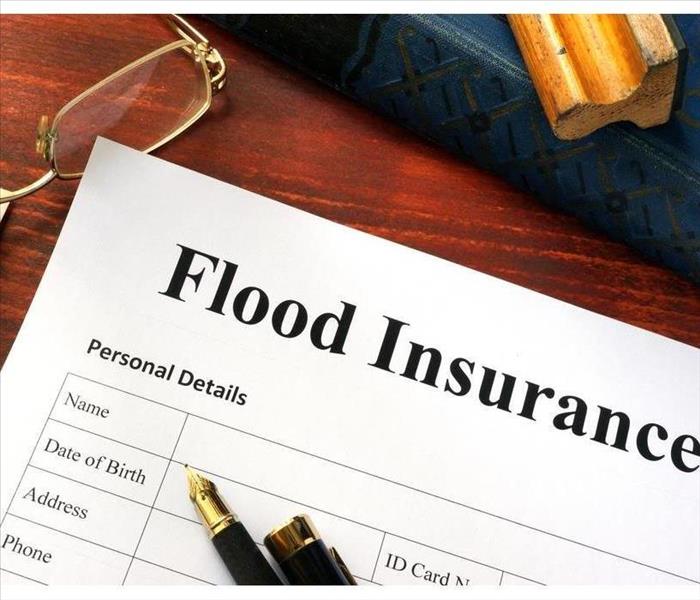5 Steps to Take When Preparing Your Home from Flooding
12/13/2022 (Permalink)
Tips to Protect Your Home and Property from Flooding
When it comes to flooding, there's a lot of ground to cover. We can't tell you when or where a flood will happen but we can share tips that will help you protect your home and property.
Measure your level of risk
Your risk of flooding depends on a number of factors. Your location, whether you live in an urban or rural area, the type of soil in your neighborhood, and even your home's elevation are all important considerations. The Federal Emergency Management Agency (FEMA) has created a map called the Flood Insurance Rate Map (FIRM) which shows where flooding is most likely to occur.
- Blue: This category has a 1% chance during any given year that flooding will occur – meaning less than one out of 100 people would see flooding over their lifetime if they bought insurance and lived there for 50 years!
- Orange: This category has at least a 1% chance during any given year that flooding will occur – meaning more than one out of 100 people would see flooding over their lifetime if they bought insurance and lived there for 50 years!
- Yellow: This category has at least a 0.2% chance during any given year that flooding will occur – meaning more than two out of 100 people would see flooding over their lifetime if they bought insurance and lived there for 50 years!
- Blue w/ Red Stripes: These areas may have features such as levees or dikes which protect them from certain types of floods but could still be affected by other types like coastal storm surge or riverine floods."
Buy flood insurance, if it's available to you.
If you live in an area prone to flooding, your homeowners' insurance company may offer flood insurance. If so, it will be included as a rider on your homeowners' policy. The National Flood Insurance Program (NFIP) offers coverage in high-risk areas outside of what's available from private insurers, but not all communities are eligible for this program.
Prepare your home
To ensure your home is prepared for flooding, you'll need to make sure that you have the following things:
- A water shutoff valve (usually located in the basement)
- Generator in case of power failure
- An elevated foundation
A backflow preventer is an important device that helps to protect your home from flooding and other safety concerns. The purpose of a backflow preventer is to make sure that only clean water flows into your home, as well as to prevent contaminants from entering the main water supply.
Keeping your gutters and downspouts clean and clear of debris is one of the most important things you can do to protect your home from flooding.
Stay safe
Floodwaters can be contaminated with sewage, chemicals, and other debris. Use extreme caution when driving or walking through floodwaters. Even shallow flooding is dangerous and should not be attempted unless absolutely necessary. Never attempt to drive across a flooded roadway; instead, turn around and find an alternate route to your destination if possible.
Being prepared can keep you from incurring damage
Create a plan for what will happen if you have to evacuate quickly. Remember: just because an area has been declared safe, doesn't mean there aren't still dangers lurking! You'll want to put together an emergency bag with essentials like medications, first aid supplies, and clothing; make sure everyone who lives in the house can get out safely, and plan ahead for how to communicate.
If you’re prepared, you can stay safe and protect your home from flooding. The most important step is to know how high your risk is for flooding and how prepared you are to deal with it if it happens. You also want to make sure that your home has been built with flood protection in mind. If possible, buy flood insurance before flooding occurs; remember that even if you don’t live in an area prone to floods, natural disasters like tornadoes and hurricanes can cause damage as well!



 24/7 Emergency Service
24/7 Emergency Service
